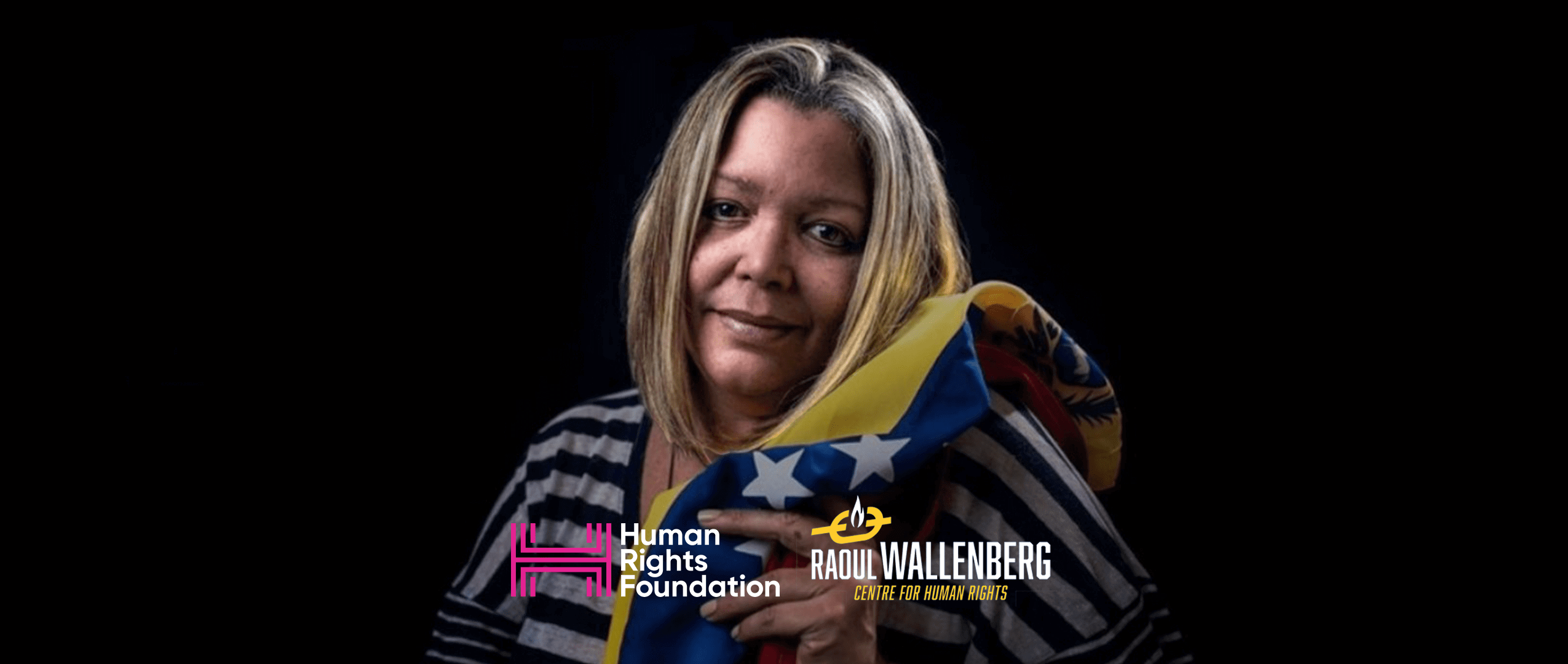Today, the Raoul Wallenberg Centre for Human Rights (RWCHR), International Bar Association’s Human Right’s Institute (IBAHRI) and the Human Rights Foundation (HRF) have appealed to the United Nations to hold Venezuela accountable for the criminalization of Judge Afiuni’s fundamental rights along with the independence of the Venezuelan legal profession. Judge Afiuni’s case represents the erosion of the rule of law and systematic use of torture to intimidate judges and lawyers in Maduro’s Venezuela.
“Judge Afiuni is a looking glass into the persistent and pervasive assault on the rule of law and the crimes against humanity committed by the Maduro regime in Venezuela, particularly torture in detention,” said the Hon. Irwin Cotler, RWCHR Chair and former Canadian Justice Minister. “The Afiuni case was even used to coerce other judges to issue arrest warrants against prominent opposition leaders like Leopoldo López. It is a direct attack on the independence of the judiciary and dramatizes the closing of democratic space in Venezuela.”
On 21 March 2019, Judge Afiuni was sentenced to five years in prison on a newly conceived and absurd charge of “spiritual corruption,” a first in Venezuelan history. Judge Afiuni was first arrested on 10 December 2009, moments after issuing a ruling for the conditional release of then political prisoner, Eligio Cedeño, a fate that Judge Afiuni would herself soon face.
Judge Afiuni suffered brutal torture and sexual violence at the hands of State officials in prison, resulting in a miscarriage and emergency surgery. Her persecution has lasted almost 11 years, with nearly 100 trial delays to inflict further suffering and prolong her Kafkaeqsue criminal process. She and her family have also faced constant harassment over the years. With the Americas becoming the world’s epicenter of the pandemic and Venezuelan courts indefinitely closed, there is no end in sight.
IBAHRI Director, Baroness Helena Kennedy QC remarked, “after years of observing the case against Judge Afiuni, we concluded the complete disregard for due process and fair trial guarantees, primarily owing to the absence of judicial independence and arbitrary decision-making. Her case is formative to the situation of the legal profession in Venezuela, demonstrating the significant and gradual deterioration of the rule of law and human rights in the country, creating a chilling effect. We hope this joint action will bring us a step closer to ensuring unconditional release and reparations for her.”
“Judge Afiuni has endured years of persecution, imprisonment, torture, and unspeakable mistreatment at the hands of the Venezuelan regime after enforcing a UN human rights decision that the late President Chávez disagreed with. He ordered the abuse directed at her,” said Thor Halvorssen, president of HRF. “Afiuni’s is an open and shut case that exposes the utter lack of judicial independence in Venezuela. Her nightmare should end. She should be acquitted.”
Venezuela is a party to the Optional Protocol to the International Covenant on Civil and Political Rights, which allows individuals to file petitions with the UN Human Rights Committee for violations of the treaty. Today’s petitions seek to restore Judge Afiuni’s fundamental rights, establish an investigation into her devastating torture and protect the professional independence of the Venezuelan legal profession in the future. This democratic pillar is essential for any recovery from the current humanitarian disaster.
For further comment, please contact media@hrf.org.
